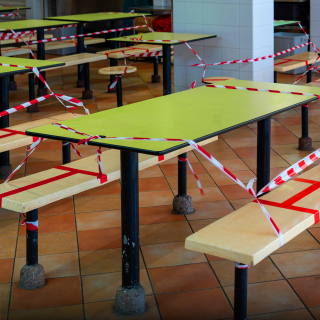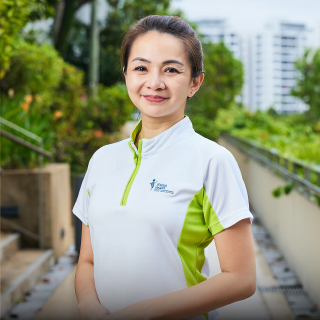REOPENING SAFELY AFTER THE CIRCUIT BREAKER
We have to do this in a very careful and calibrated manner, because we do not want to risk a flaring up of the virus again. And importantly, we do not want to sacrifice the efforts that all of us have put in over the past few weeks in controlling the outbreak.
On May 19, 2020, the Multi-Ministry Taskforce (MTF) announced that Singapore would exit the circuit breaker on Jun 1, 2022.
A controlled approach was important as community cases were likely to increase with the resumption of more activities and social interactions. Measures were lifted progressively so that Singapore could detect and contain new cases quickly and prevent large clusters from forming.
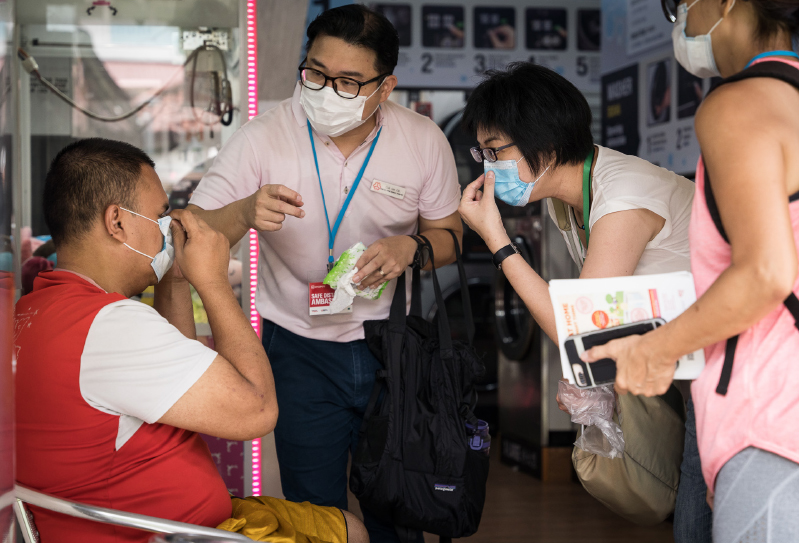

The Ministry of Health identified three areas of capabilities that were critical for Singapore’s reopening:
BOOSTING TESTING CAPACITY to diagnose cases early and screen at-risk individuals to protect the more vulnerable groups.
HASTENING CONTACT TRACING PROCESSES to quickly identify and isolate close contacts of infected persons, ring-fence cases and prevent large clusters from forming.
ESTABLISHING SUFFICIENT HEALTHCARE CAPACITY to manage potential surges in COVID-19 cases and ensuring that everyone receives the care they need.
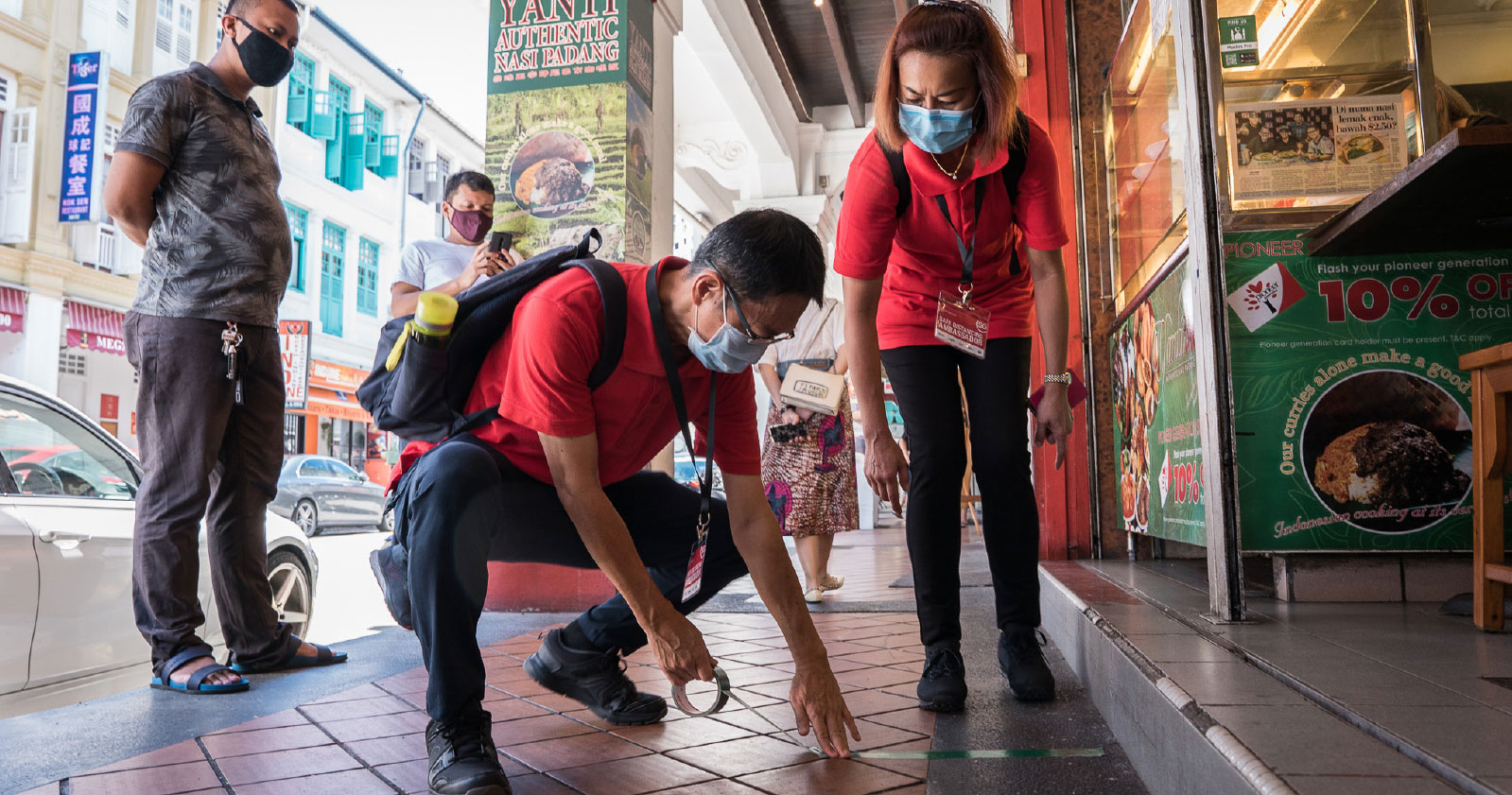
Singapore adopted a three-phased approach to resume activities safely:
PHASE 1 (SAFE REOPENING)

Singaporeans were allowed to return to workplaces that operated in settings with lower risk of transmission. Essential services related to vehicles, air-con and pets were allowed to resume. Safe management measures were still enforced at workplaces.
Visiting parents or grandparents was allowed with a limit of two visitors per day. Marriage solemnisations, funerals and wakes could resume with a maximum of 10 persons. Places of worship were reopened for private worship sessions.
Primary and secondary school students from graduating cohorts were allowed to attend school daily. Other students alternated between home-based learning and attending school in person. However, co-curricular activities, enrichment activities and tuition were not yet allowed to resume.
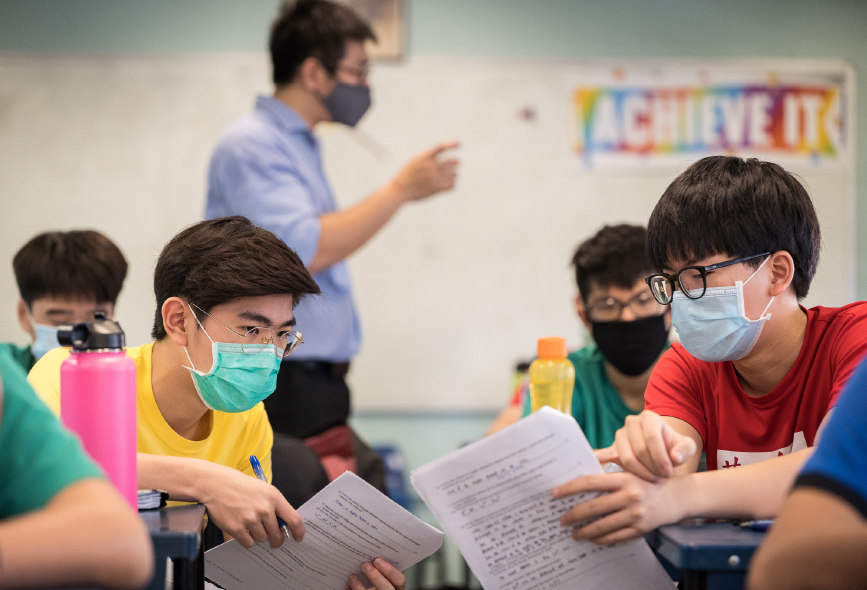

STRIKING
A BALANCE
“On one hand, we want to allow economic and community activities to resume, while on the other hand, we must continue to keep infections under control. This is a very delicate balance we have to strike, and to succeed, we will need the collective effort of every Singaporean to be socially responsible.”
PHASE 2 (SAFE TRANSITION)

Households could receive up to five visitors at any one time.
Retail businesses re-opened their physical outlets.
Dine-in at F&B outlets was allowed, with a maximum of five diners per table. Live music was still prohibited.
Liquor sales and consumption of alcohol had to cease at 10.30pm.
STAYING
UNITED
“I am very grateful that Singaporeans have complied with the spirit, and not just the letter of the rules. We stayed united, kept up our guard, and did not allow ourselves to become complacent over time. We can be proud of how far we have come.”
PHASE 3 (SAFE NATION)

Group sizes for household visits and gatherings were increased to eight.
The capacity for congregational and other worship services was increased to 250.
Live instrumental music was allowed for certain activities, including marriage solemnisations in indoor venues, and funerals.
Restrictions on migrant workers were gradually eased, with more visits allowed to recreational centres.










